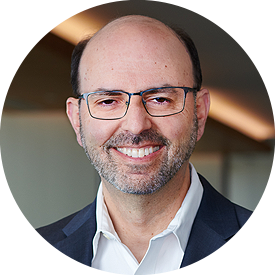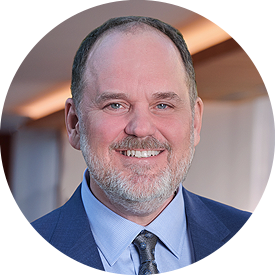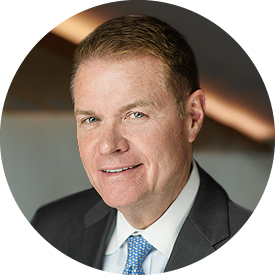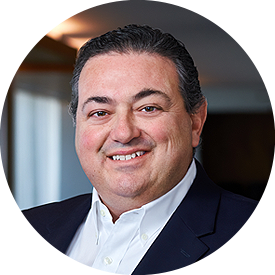Devaraj Munikrishnappa, M.D.,
Houston Kidney Specialists Center
I have always believed working together with nephrologists is the clearest first choice for nephrologists compared to working in a multispecialty center, hospital, or even for large dialysis organizations. The alignment is natural, and the understanding of our common needs is the best. Panoramic Health is just that – a unique platform for nephrologists to come together. When I learned about it way back in 2013 or so, my first impression was that I was talking to a set of people who are very smart, knowledgeable, and very trustworthy looking to create a partnership beyond the boundaries. It resonated with what I personally envisioned for all the nephrologists.
Panoramic Health is data-driven
We at HKSC have always been data-driven, which attracted us even more to Panoramic Health as it was also data-driven. What is not measured is more likely to be lost! Panoramic Health provides integrated data across many aspects of practice including revenue cycle management, code utilization, recovery of patients lost to the practice on one platform in real time! Panoramic Health is uniquely positioned to improve not only the efficiencies driven by data regardless of the size of the practices but also, return on the ever-increasing overhead already incurred by the practice. It was an eye-opener to understand how much money we were leaving behind on the table.
Panoramic Health helps improve Practice and Provider Performance
Panoramic Health provides comparative data and benchmarks between our practice and various other Panoramic Health practices, CMS, RPA etc., which are otherwise inaccessible, especially for small practices like ours. Even if it is accessible to larger practices, Panoramic Health saves time by making it readily available while we are busy practicing. Comparative or benchmark data helps individuals in the practices outperform themselves and remain competitive. This translates, in turn, to better patient satisfaction both by the individual physician and the practice which is reflected in the patient report card provided by Panoramic Health.
Panoramic Health helps increase financial strength of the practice
Houston Kidney Specialist Center [HKSC] was started as a two- person practice in 2019. We were looking to grow our practice through working hard, providing more time to our patients, on being readily available to our patients and referral bases and do the best we could. Panoramic Health gave us the time to do exactly that by taking away the time and labor we would have spent on revenue cycle management, suitable EHR identification, payer contracting, charge capture, compiling all the data such as lists of office patients with outstanding balance, appointment cadence, missing appointments etc. Physician's time is valued the highest in our practice and Panoramic Health helps us in multiple aspects to keep it that way. To achieve the highest productivity possible for your time, I often quote this to my team: Do what you can do best and delegate the rest. Panoramic Health improved our growth, financial strength and productivity significantly by taking care of its delegated responsibility spectacularly.
Panoramic Health provides practice leaders, administrators and managers more time
As a physician leader/administrator, if I were to spend my time obtaining all the support as Panoramic Health provides, I would spend a tremendous amount of time away from the patients which in turn will cause revenue loss personally and to practice. Even if I were to spend all the time, I would still come out inferior in my outcomes because it is impossible to secure all the tools that Panoramic Health provides for practices of any size at the cost it provides.
Digitalization of practices
One of the most fascinating things I love about Panoramic Health is that it is set up to incorporate any new or cutting-edge digital tool into practices regardless of the size and location anywhere in the nation faster than most practices can do on their own. No practice should be behind in this day and age in adopting digitalization which is happening at the speed faster than lightning sometimes. Improved patient care delivery, increase revenue and efficiency are natural consequences with this. A charge capture software that is integrated into the practices from day one as part of Panoramic Health covered services is an excellent example of it. From what I had researched previously, this alone can increase the revenues significantly by about 17% or so according to some data, compared to tracking the charges by way of handwritten papers which were then faxed to the office billers whenever the physicians “had time” and then the data gleaned by the back-end billing personnel with back-and-forth clarifications with the physician many times! It is prone to inaccuracies as well as significant delays in cash flow. An electronic version of the data on the patients seen on a day-to-day basis subsequently helps to mine the data for further downstream purposes such as, for instance, with one click, assembling the patients that have not been seen for the month in any of the dialysis units anywhere as opposed to trying to remember the same!
Chronic kidney disease patients, by nature, see more doctors than the general population creating a fatigue factor. In addition, many of them are asymptomatic despite significantly reduced kidney function and often tend to equate good urine output with good kidney function which is obviously not necessarily true all the time. The overall impact is a disinclination or outright failure to follow-up meticulously as recommended to the tune of more than 5 to 25% depending on the practices in my estimate. Therefore, having an effective way to track them and an effective team to educate these vulnerable patients to come back for follow-ups helps us serve the community significantly better. Panoramic Health through its appointment cadence data of our patients achieve it. Obviously, it is immensely satisfying as nephrologists to change the course of our patients for the better by making them realize the importance of proper follow-up which could sometimes be, in fact, life saving for some patients.
The Physicians partnered with Panoramic Health committed to meet and beat the best metrics set by the external organizations that are either valued or validated by the nephrology community at large, automatically translates to a significantly better standard of care delivered to the patients. In general, the care provided to our patients by physicians supported by Panoramic Health is extraordinarily transformational in that they have more time, more digital tools, more evolving educational materials, and report cards to offer for the patients.
The growth of Panoramic Health augers well for overall patient care delivery and management.
Panoramic Health concept is intrinsically nephrology patient centric since it was conceived, developed and evolved by nephrologists. At the heart of it is the kidney patient. It encompasses every aspect of the nephrologist including the patients, the practice, the financial health, business support, joint venture prospects beyond the confines of one's own practice. The most important aspect of joining the PANORAMIC HEALTH is joining an organization of extremely bright, talented and well proven physicians who are your own nephrologists. They cannot think any other way for you but like yourself for your practice. Every practice will grow as the Panoramic Health grows and Panoramic Health grows as every practice grows as well!
One of the most common misconceptions associated with even the groups coming together regardless of Panoramic Health being in the equation is concerns about loss of autonomy and culture change. Panoramic Health does not cause any change in a practice that is detrimental to the practice. The changes are warranted as part of an effort to gain from the economy of scales and the scope that then can be passed on back into practice. In other words, we come together where we can and go on as we did before where we have no need to. Indeed, practice autonomy is very well preserved because Panoramic Health helps to sustain any competition, survive changes in our ecosystem caused by CMS or hospital or large dialysis organizations. The practice must be well alive for the physicians to exert autonomy as they perceive. Otherwise, it is like the ego trying to outlive the person. In addition, Panoramic Health understands that who else is better than you to run the practice you have run all this while locally. I often said to my team that we may be a small practice, but we have an army behind us to help our patients!
Although we are not yet part of value-based care, Panoramic Health recommended us to be prepared. We put in place a clinical coordination program with a dedicated person coordinating the care as per the Panoramic Health protocol developed in consultation with the practices. Both the clinical coordinator and the manager receive ongoing training. Patients’ feedback has been extremely positive and rewarding. Patients, above all, find immense relief in the extra help that they receive from a phone call from the person in the office to help coordinate the care. It could be as simple as just going over their medications again, or understanding the doctor’s recommendation again, to getting them to connect with appropriate referrals, to simply just letting them know we are a phone call away if they have any questions. Our patients are getting to know that our care is beyond just an office visit. We truly believe in: "I do not care how much you know until I know how much you care"!
Our clinical coordinator has several examples where she felt like she made a difference in a patient's life every day. Here is a real-time very common example. A patient was discharged from the hospital with an order for physical therapy and occupational therapy. When our clinical coordinator called the patient, she reported that the therapy had not yet started despite being told that she would and did not know why. The clinical coordinator then spoke to the primary care physician's office who then informed her that the patient needs to be seen as a follow-up after the hospital discharge to order physical therapy. Our clinical coordinator also spoke with the rehabilitation center representative to ensure that the patient gets contacted after an order for physical therapy was received. Of course, it took several back-and-forth phone calls. Later in the day, the patient called our clinical coordinator happy to inform her that an office visit followed by a physical therapy visit has been set up! She was very thankful. Our clinical coordinator also set up for her to have an educational session for her kidney problem.
Here is a fine example of genuinely caring for the patient beyond medical treatment. This small step of clinical coordination had a substantial impact in several ways– patient was relieved of the anxiety of how to secure her physical therapy, our coordinator served as an effective timely bridge between hospital and the patient and then patient and the PCP as well as the rehab team, likely caused reduced hospitalization, reduced cost of care and certainly improved the patient satisfaction as well as our own gratification. Panoramic Health given its strong commitment to dedicated training of the clinical coordinators across the practices in the nation, the day is not too far when it scales up to provide delivery of care that would have been inconceivable anytime in the past and truly transformational in the nation!
"If you’re not prepared to succeed, you are preparing to fail!”















